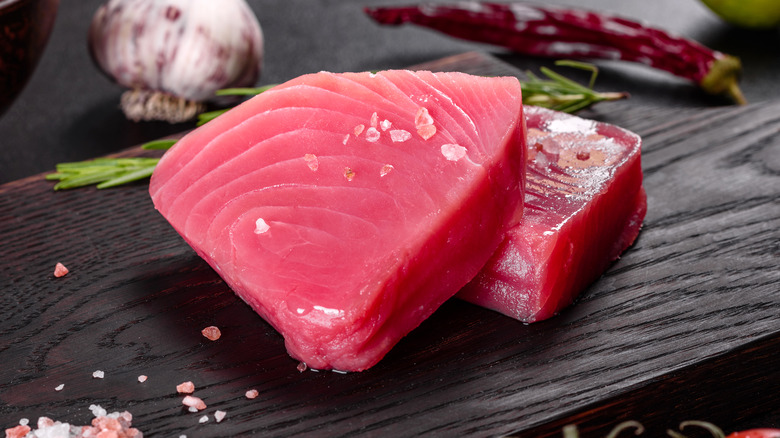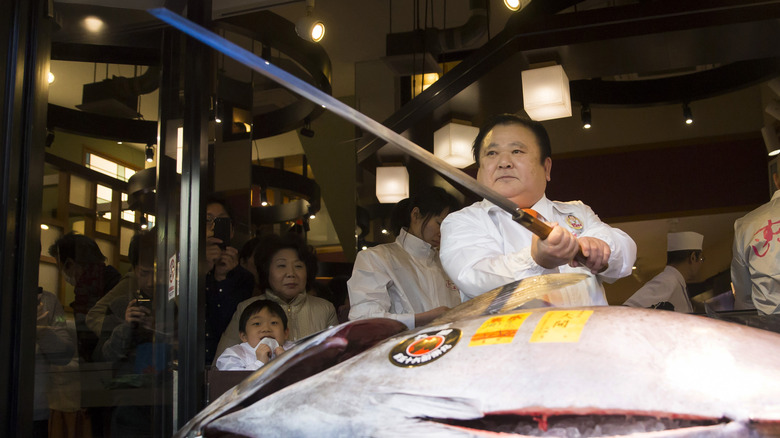The Best Type Of Knife For Cutting Tuna Might Be A Sword
The diverse world of cuisine is one full of different ingredients, and the tools and practices that are used to maximize the flavors of those ingredients. The more complex the ingredient, the more specialized the tool. The more complicated the flavors, the more nuanced an instrument must be in order to utilize its full potential.
But don't get specialized and nuanced confused with delicate. The tools and tricks of the trade must be just as varied as the ingredients they work on. For instance, the enormous tuna that carve through the ocean with speed and power require an equally impressive knife in order to butcher and eventually shape their meat into the many beautiful forms of sushi that grace your plate. It is through the maguro bōchō knife, or "tuna knife" in Japanese, that the massive tuna are cut and quartered into the pieces that are sent to restaurants (per The Cook's Edge).
How it looks and why it's made to cut tuna
According to Meglio Knives, maguro bōchō (also called the maguro kiri bōchō) are enormous Japanese knives that have been traditionally used to butcher not just tuna but also other large fish that are often used in sushi and sashimi. The Cook's Edge says that the blades can range in lengths from 15 inches to almost 60 inches, while Japanese knife company Korin explains that they come with a long thick handle for a solid grip and a very sturdy but softer carbon metal composition in the blade to prevent chipping.
Butchering and cutting maguro and other large fish is a strenuous activity that often requires several people to handle the fish because of its enormous size, as you can see in this video from Eater. This makes the maguro bōchō perfect for this stage of preparation, thanks to its length and weight, but fairly clumsy at the more delicate stages of food preparation. According to Knifewear, because they are so commonly used in fish markets, they are also known as oroshi-hocho or "wholesale knives." Given their stunning size, they are often compared to swords, but unless you're a tuna master, you'll want to keep the swordfighting to a minimum.

